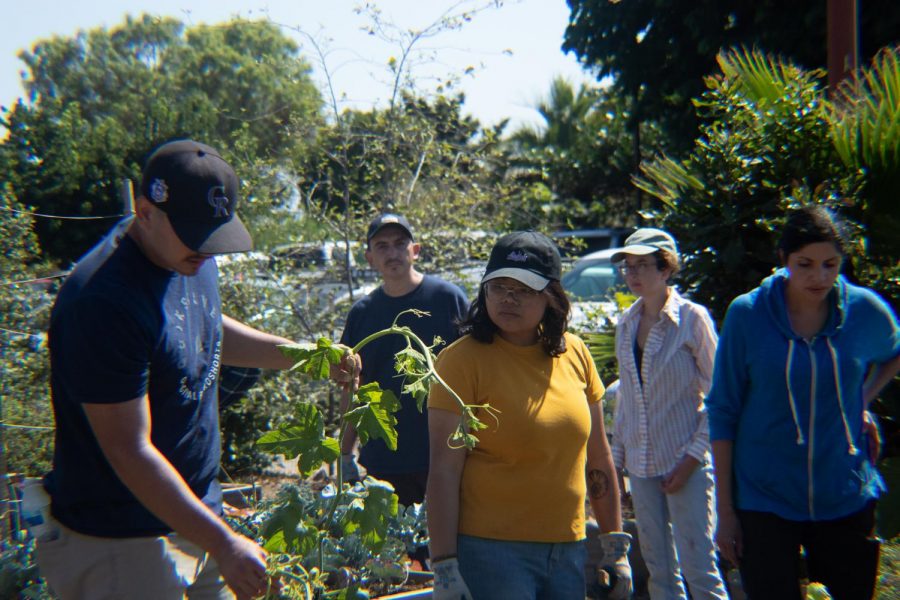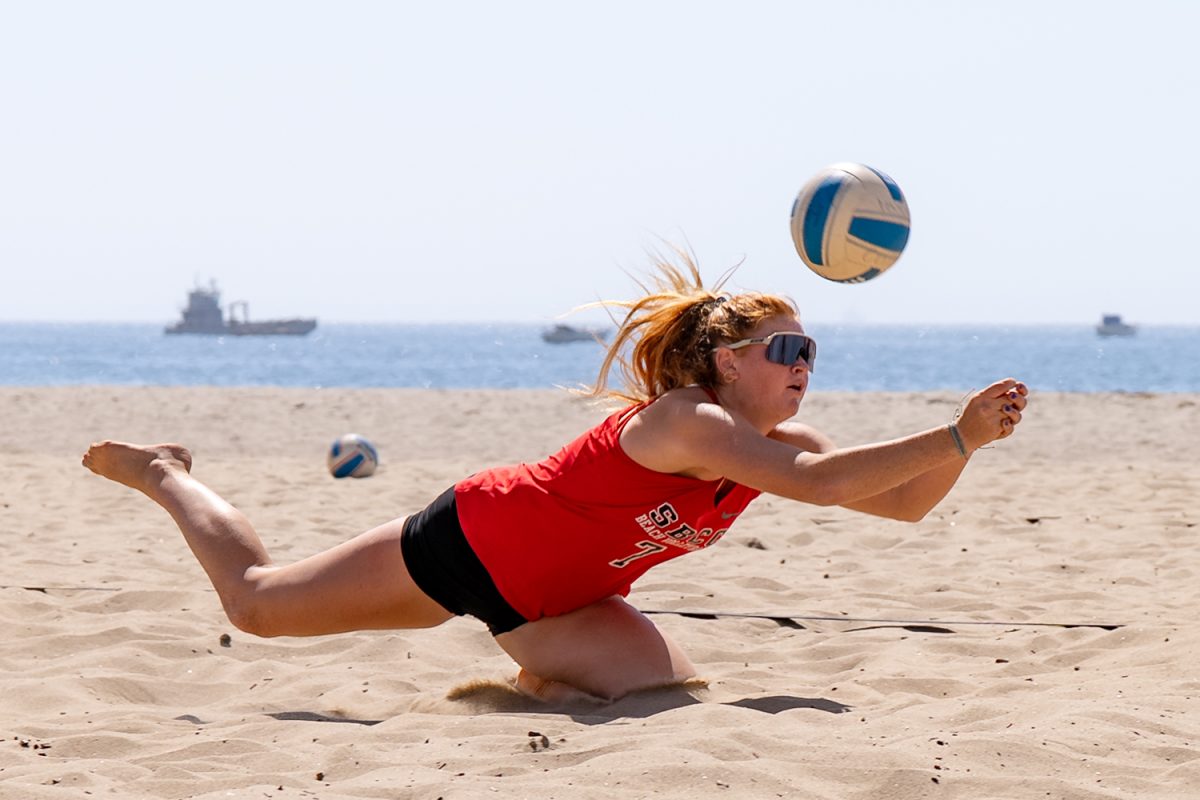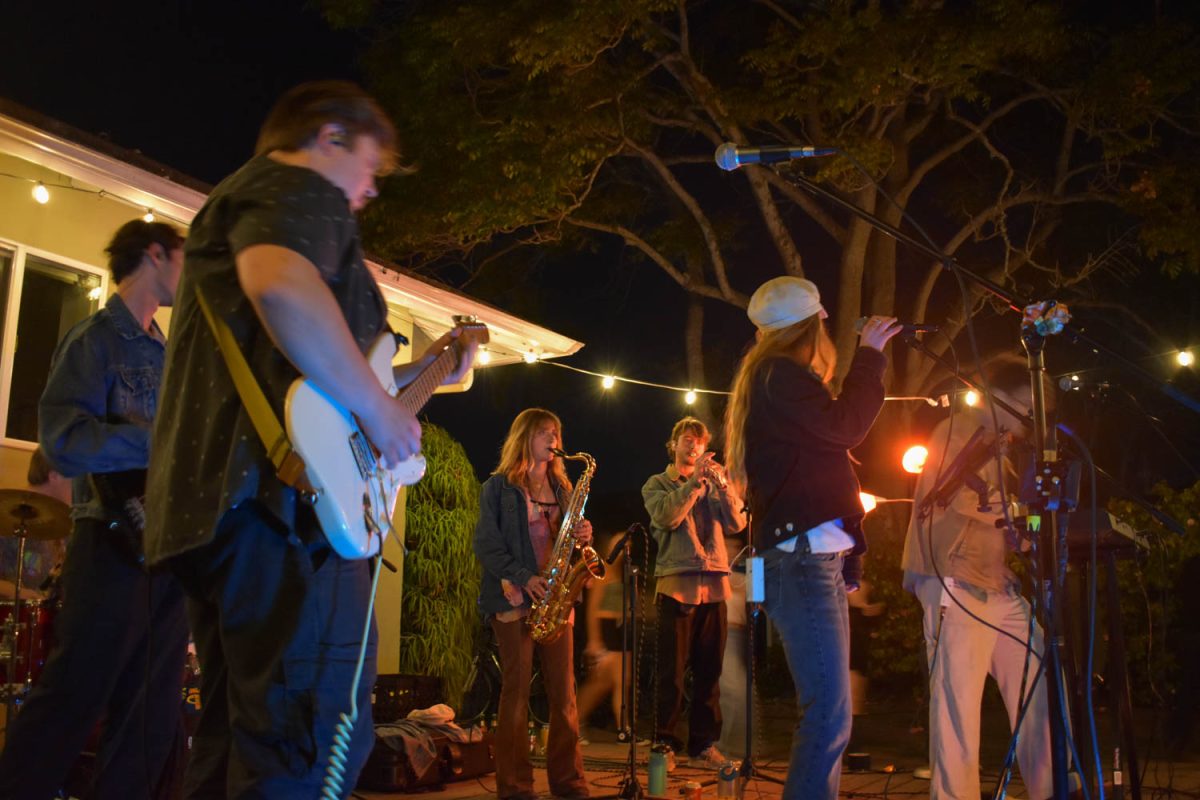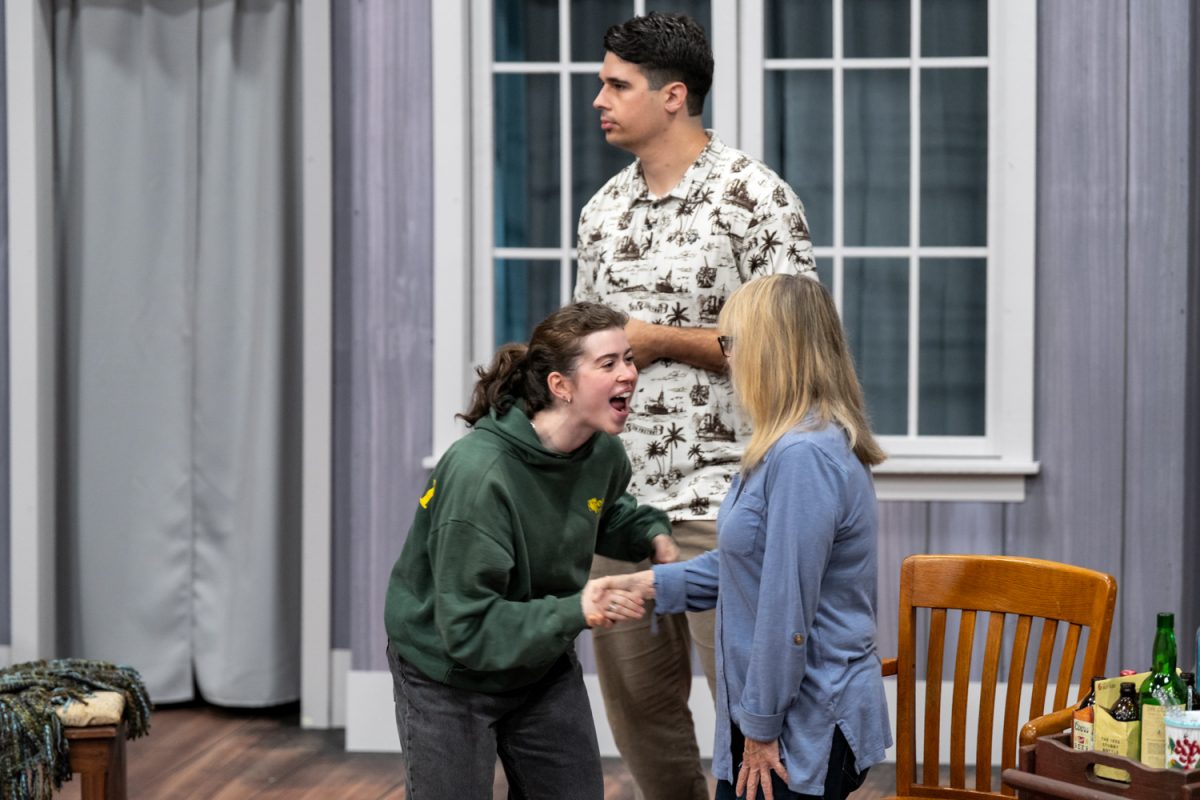Even without full funding, the East Campus Lifescape Garden continues to bloom as the Small Scale Food Production class starts its third year of maintaining the garden during fall semesters.
Since the East Campus portable classrooms were removed in 2016, the Lifescape Garden has lacked a paid overseer. Instead, the care of the garden has been a collaborative effort by mainly student volunteers.
In addition to student volunteers, Don Hartley, an instructor in the horticulture department, has been teaching a small scale food production class on campus every fall semester for the past three years. This class maintains and uses the garden to teach about the benefits of growing your own food.
“I like this [class] because it’s vocational,” said student Alfonso Delgado, an environmental horticulture major.
During the fall, the three-unit class meets every Tuesday and typically involves weeding, watering, planting and harvesting different foods. Oftentimes the students are able to enjoy a freshly harvested lunch between the lab and lecture.
This semester students have planted foods like squash, zucchini, broccoli and corn.
“I think it’s really important in the modern-day to be able to grow your own food,” said student Mila Berntsten as she watered broccoli in the garden. “Everything we’re being taught in lecture we go out to the garden and directly use it.”
The class is split into two parts, Hartley explained. The lecture covers the “why and how” of small scale food production while the lab applies this knowledge to real life.
Despite the success of the class, the garden lacks many of the resources it needs to flourish due to recent campus-wide budget cuts.
“What we need is a full time, paid teaching assistant in this garden,” Hartley said. “With the budget cuts, we can’t do irrigation, PVC and a valve.”
One idea Hartley and his teaching assistant, Lewis Daniel, pondered was installing an irrigation system. “It would be much easier and beneficial to have proper irrigation… it would be an initial expense but worth it in the long run,” said Daniel.
“If we had enough funding we would be doing it already,” said Gabriela Perez, a new hire in the Permaculture Garden on West Campus. Perez also spends her paid hours helping in the Lifescape Garden when she can.
The garden currently heavily relies on donations from gardening equipment suppliers such as Green Coast Hydroponics, which has donated grow bags and other supplies, and Island Seed and Feed which has donated seeds and tools to the garden.
Just as the West Campus garden provides food for the Food Pantry, the Lifescape Garden shares many of those same goals.
“The idea is that we’re growing food for JSB Cafe, the Gourmet Dining Room, and [having] the excess food go to the pantry,” Hartley said.
During the spring Hartley teaches an ecology class but ideally would like to see the production class span three semesters, with classes in the fall and spring and an advanced summer course.
“If we are going to try and save this planet we can’t grow food that has to be transported 2 thousand miles,” Hartley said.










![Milton Alejandro Lopez Plascencia holds a flag showcasing the United States and Mexico on Feb. 7 in Santa Barbara, Calif. “It’s heartbreaking to see what is happening all across the country,” Lopez Plascencia said. “I [want] my voice to be heard by the community.”](https://www.thechannels.org/wp-content/uploads/2025/05/MGSImmigration-1-1200x800.jpg)




